Written by: Wang Dong, Phoenix Network
Recently, many people have come across posts on social media about "taking in heartbroken boys."
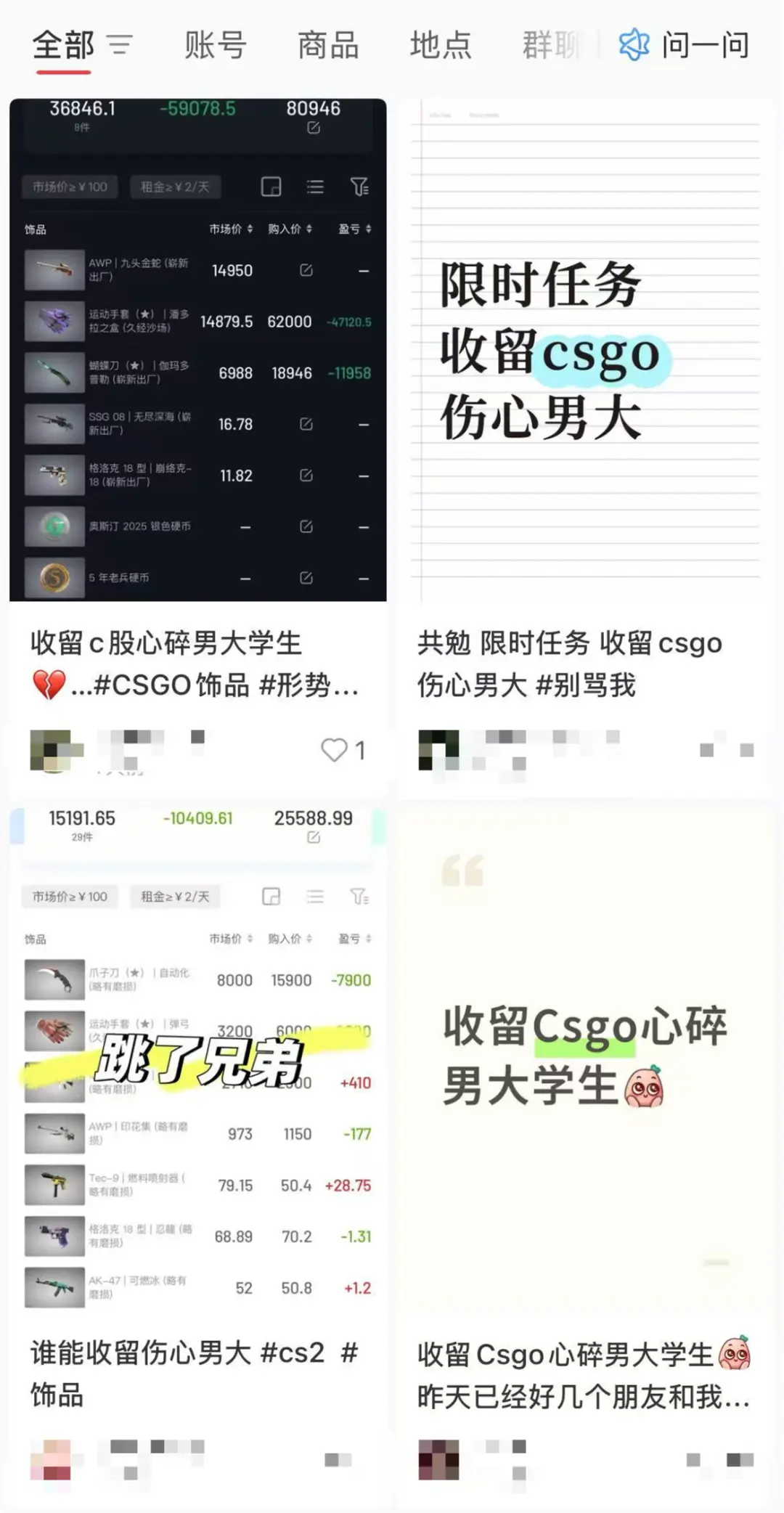
At first glance, it seems like a meme, but after browsing through QQ groups and forums, it turns out there is indeed a batch of heartbroken boys fresh off the production line—
Many of them have just experienced their first major investment failure in life:
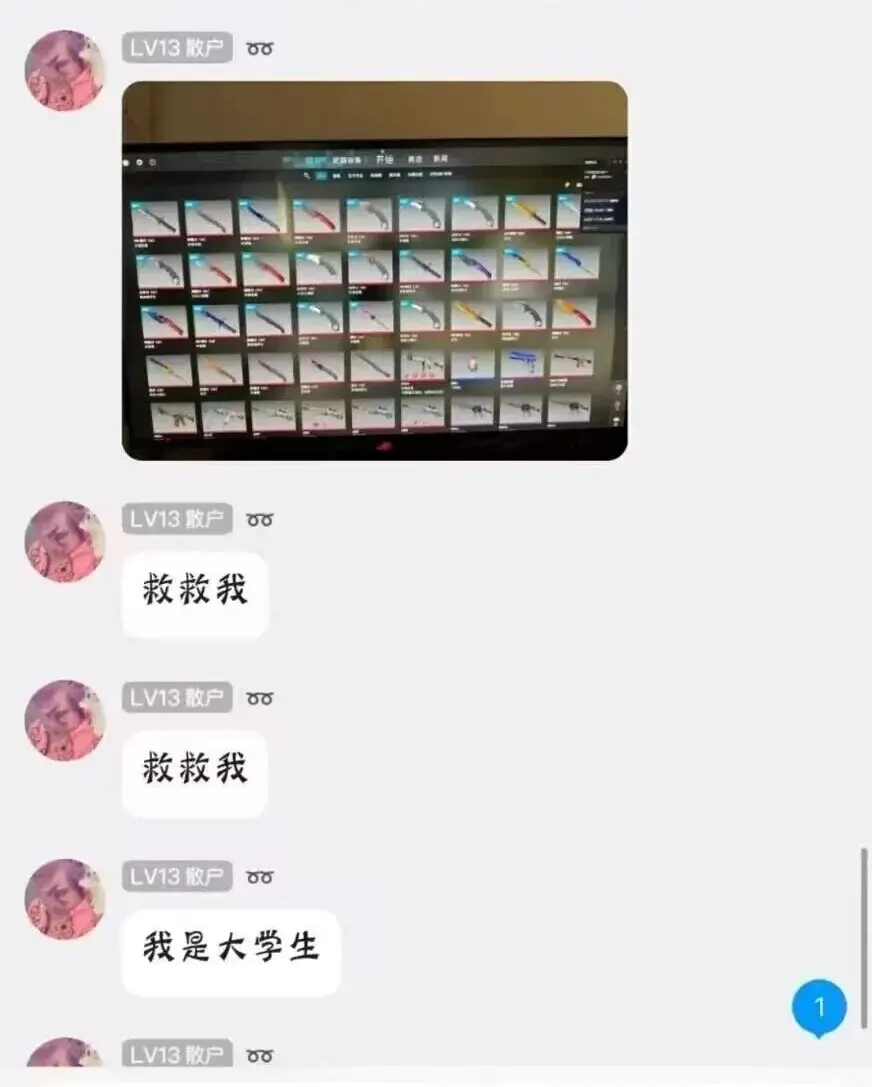
However, these boys are neither heavily invested in A-shares nor have they bought gold at high prices.
What has them wailing is the virtual skin trading market of the shooting game CS2.
According to media reports, on the 24th alone, the market evaporated $2 billion (approximately 142 billion RMB).
Countless people's assets turned to ashes overnight (though it was actually only a few hours).
Wait, isn't CS2 a shooting game? How did it end up resembling the stock market?
This is a long story.
The disastrous crash, how many people lost sleep overnight?
Many days later, facing empty accounts, CS skin traders will recall that distant afternoon when Valve (the developer of CS2) announced the opening of skin alchemy.
Last Thursday, Valve announced a "routine" game update, which included a clause that surprised many.
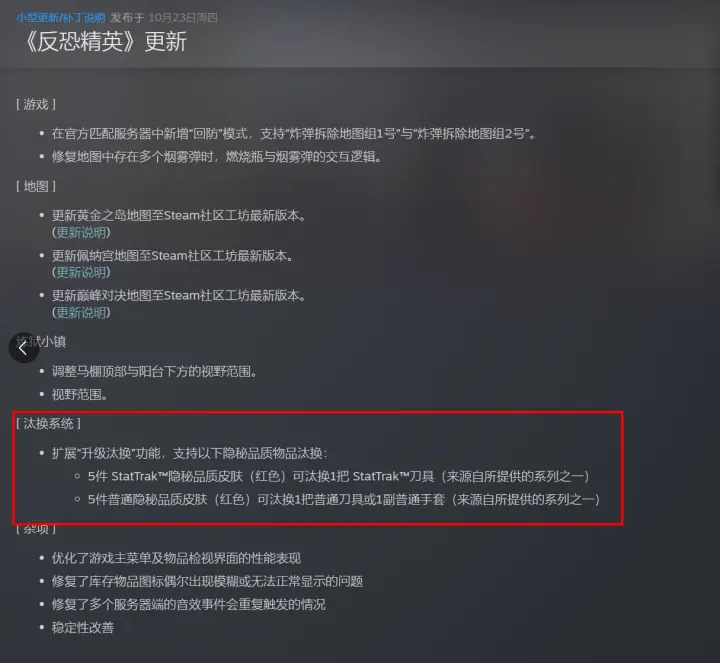
In summary, the top-tier knife and glove skins that could only be obtained through opening cases can now be synthesized using lower-tier skins.
To put it simply, what used to be natural diamonds can now be synthesized with glass marbles—how could the price not drop?
This regulation directly impacted the long-standing CS skin trading market.
In CS2, the price for opening a case is about $17, with a mere 0.26% chance of pulling a top-tier skin, and knife and glove skins are considered top-tier items.
Clearly, it is too difficult to pull a knife or glove skin on your own, so the best way is to buy directly from the market.
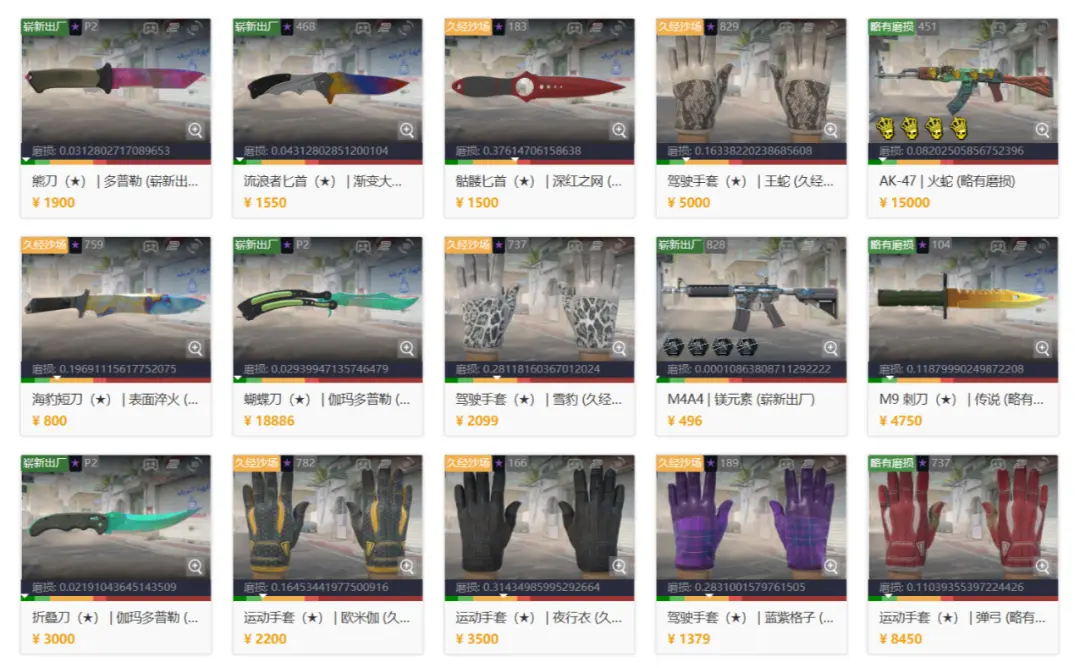
Scarcity makes things valuable; wanting to buy a decent knife or glove skin, a few thousand bucks is just a friendly gesture, and prices in the hundreds of thousands for top skins are not uncommon.
But now, under Valve's new policy, lower-quality red skins can be synthesized into top-tier gold skins, which netizens have dubbed:
"Red skin alchemy."
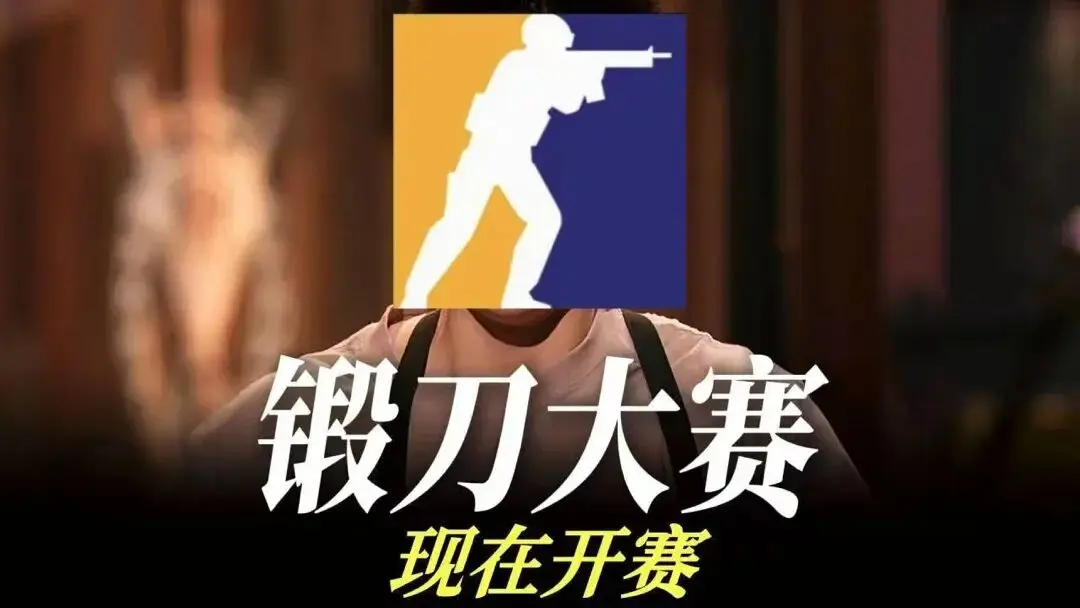
Countless players logged into their accounts, dug out those red skins that had been gathering dust, and invested in the knife forging business:
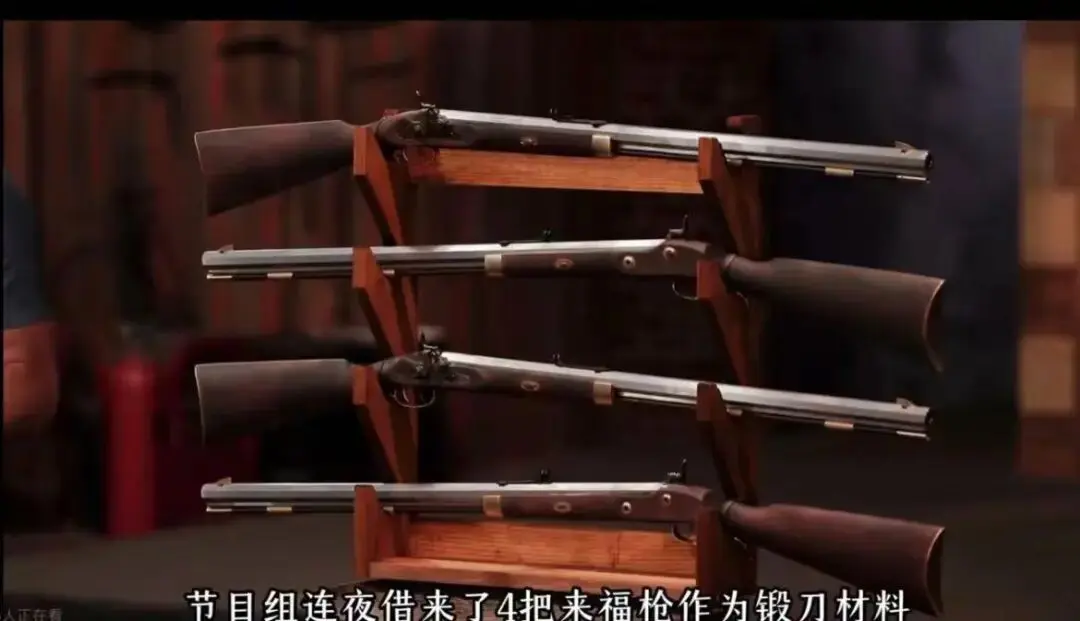
With the knife forging method, those once revered top-tier items became no longer rare.
The price of popular butterfly knives was directly halved:
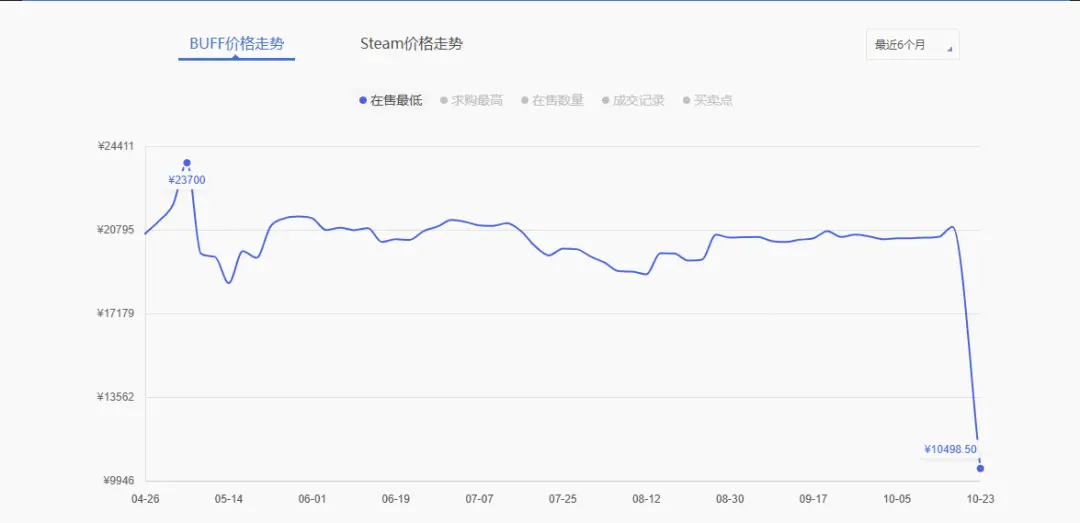
The hardest hit were the "resellers" (a term of endearment for players who speculate on skins) who hoarded large quantities of skins.
Some lost 600,000 overnight:
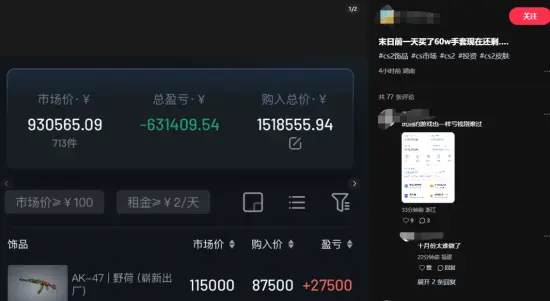
There were also college students who put their living expenses into it.
In the group, everyone was wailing:
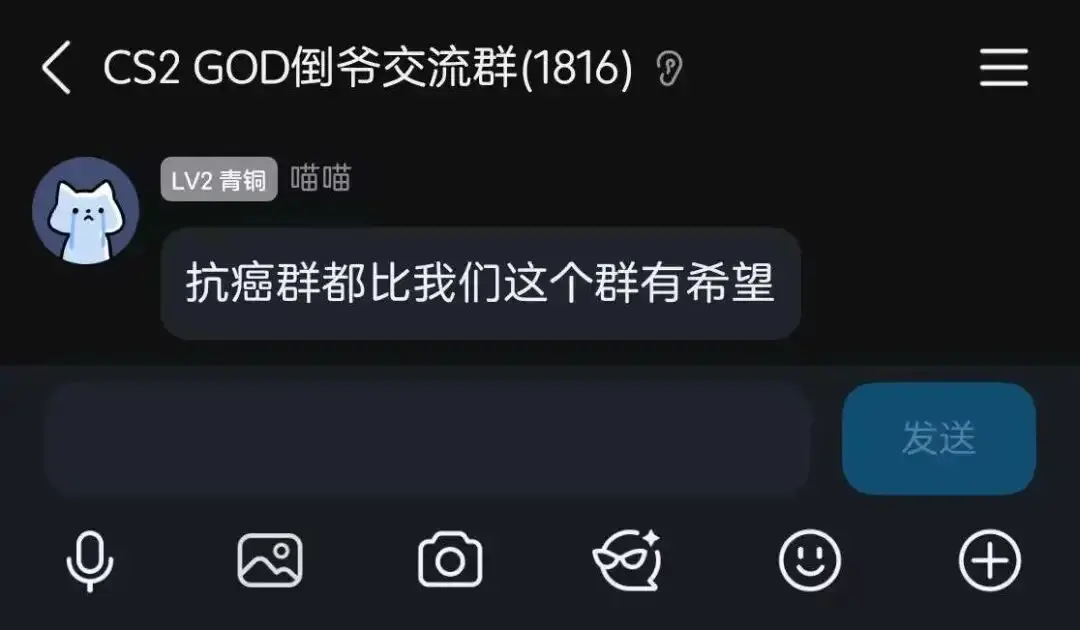
On social media, people were cursing Valve's boss, Gaben.
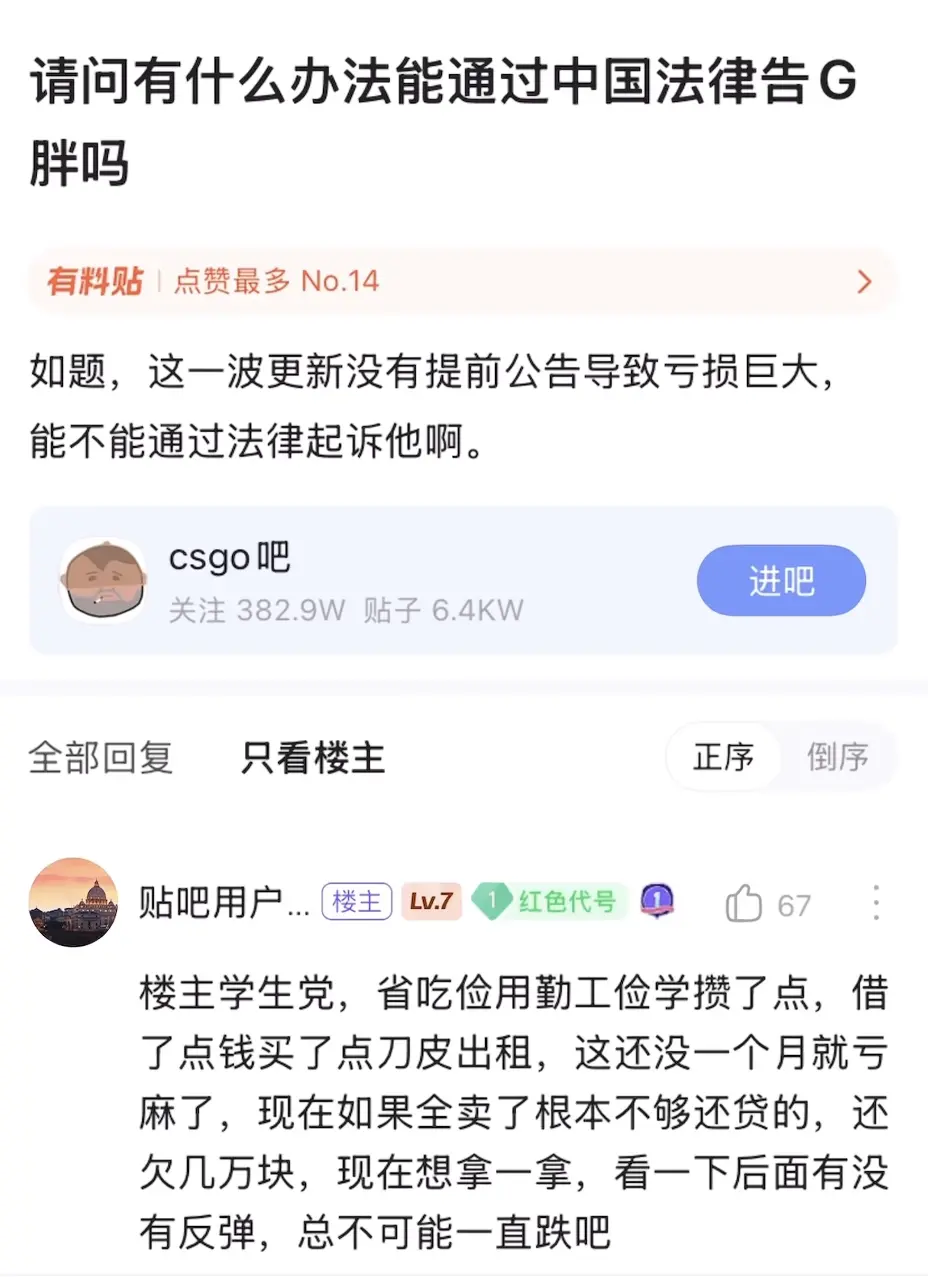
In addition to resellers, professional players with large skin collections also took a hit.
Spinx from the MOUZ team expressed his feelings on Twitter after liquidating his assets, saying life is about dreams and each person shines in their own way:
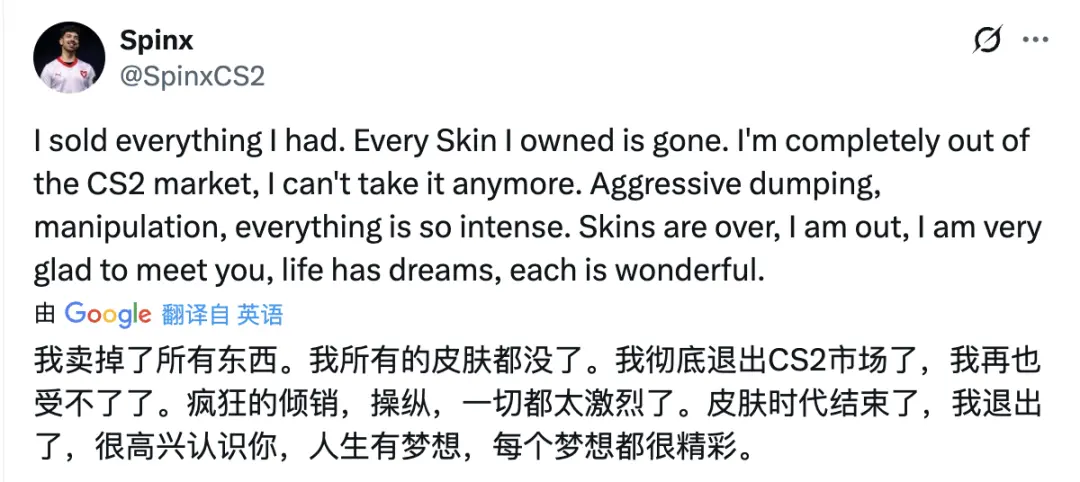
Although every snowflake is not innocent, some can bravely venture into the world amidst an avalanche. Sometimes, you just do nothing and automatically win when the match settles.
Former professional player NiKo, who never speculated on skins, escaped unscathed in this wave of price drops.
He expressed sympathy for players who invested in skin trading:

People like NiKo, who have a vast fortune, are just a minority; more players expressed that they just found it noisy.
In their view, those resellers who suffered heavy losses got what they deserved.
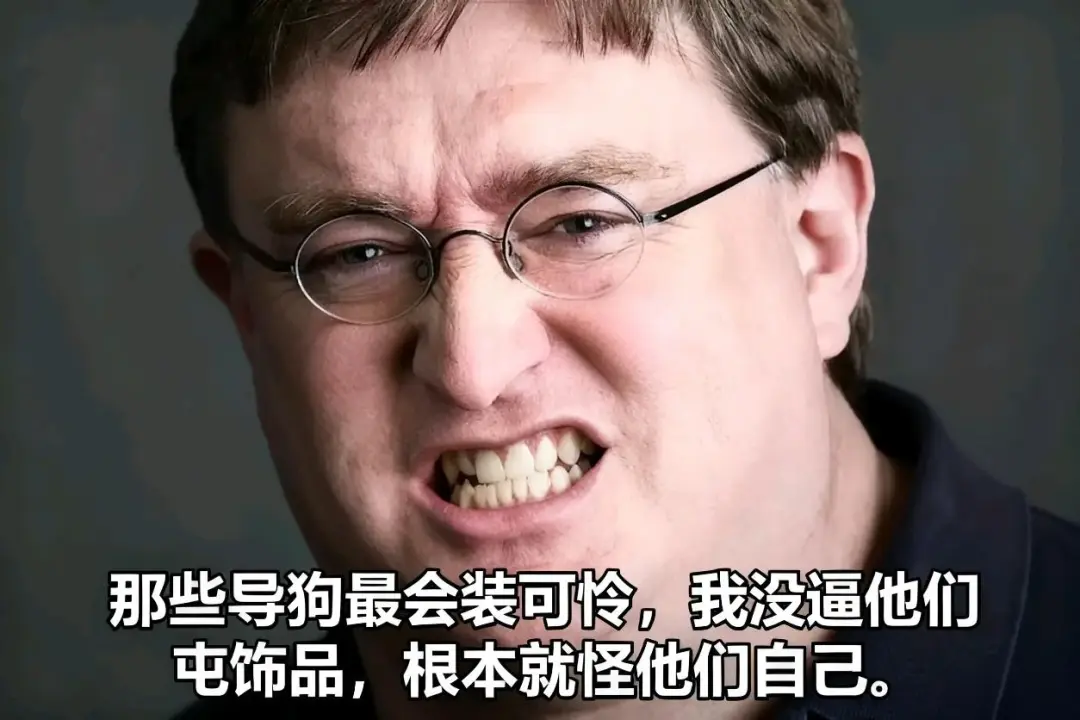
This was originally a game centered on entertainment and competition, but now it has been muddied by these skin speculators. This opportunity has allowed them all to be out, leaving the CS community with a clear sky:
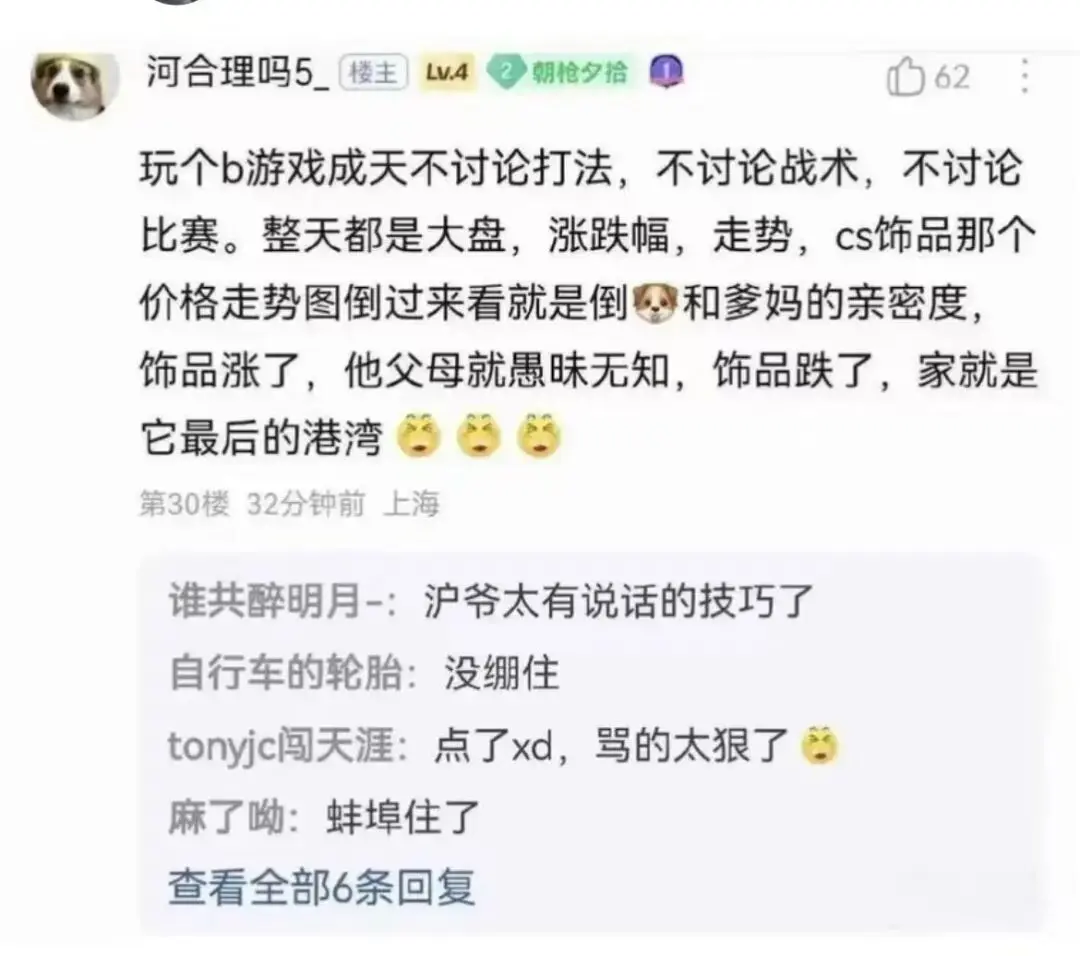
In their view, Gaben's iron-fisted new policy is actually a great benefit for ordinary players.
Once lofty top skins have now flown into the homes of ordinary people.
Players who were still wearing grass shoes yesterday are now living in seaside villas today.

Gaben's iron fist this time can be described as killing one person every ten steps, leaving no trace for a thousand miles; once the matter is settled, he leaves without a trace, hiding his identity and name.
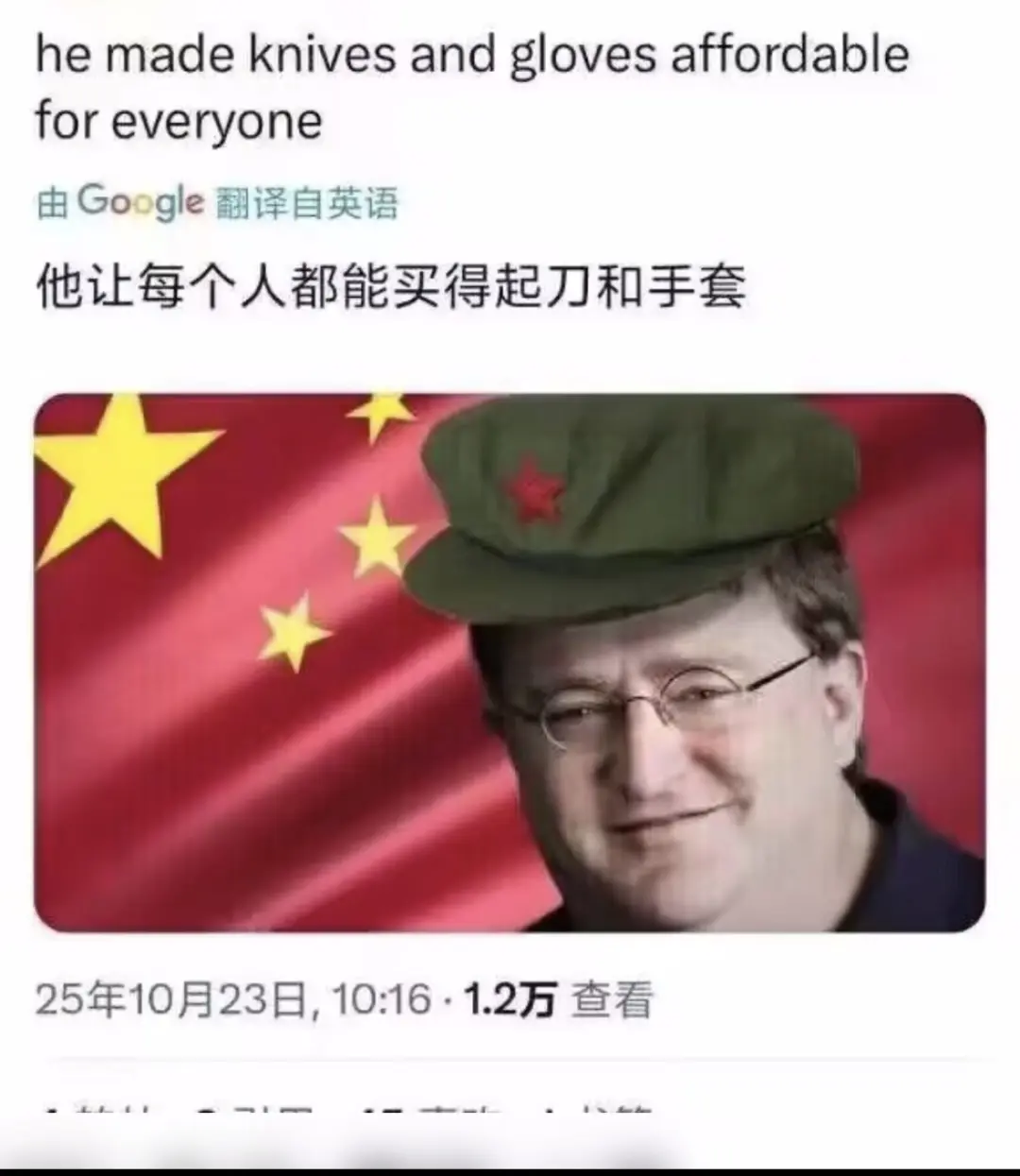
So, is Gaben really a great saint who thinks wholeheartedly for the players?
It may not be that simple.
How was the hundred billion dollar cyber market formed?
Making money by selling skins is almost the profit model of all online games. Adding a case-opening feature in games is also very mainstream, and even the microtransaction systems in games are not unusual.
But only Valve's games have spawned such a huge off-market trading market.
This is not a coincidence, but the result of careful design by Gaben and Valve.
The "source of all evil" is Valve's 2007 game "Team Fortress 2."
In this game, Valve introduced a hat system, allowing players to purchase various hats for their characters, which do not affect game balance and are purely decorative.
Some of these hats drop in-game, some can be synthesized, and some require completing tasks…
Of course, you can also directly spend money to open them from cases.
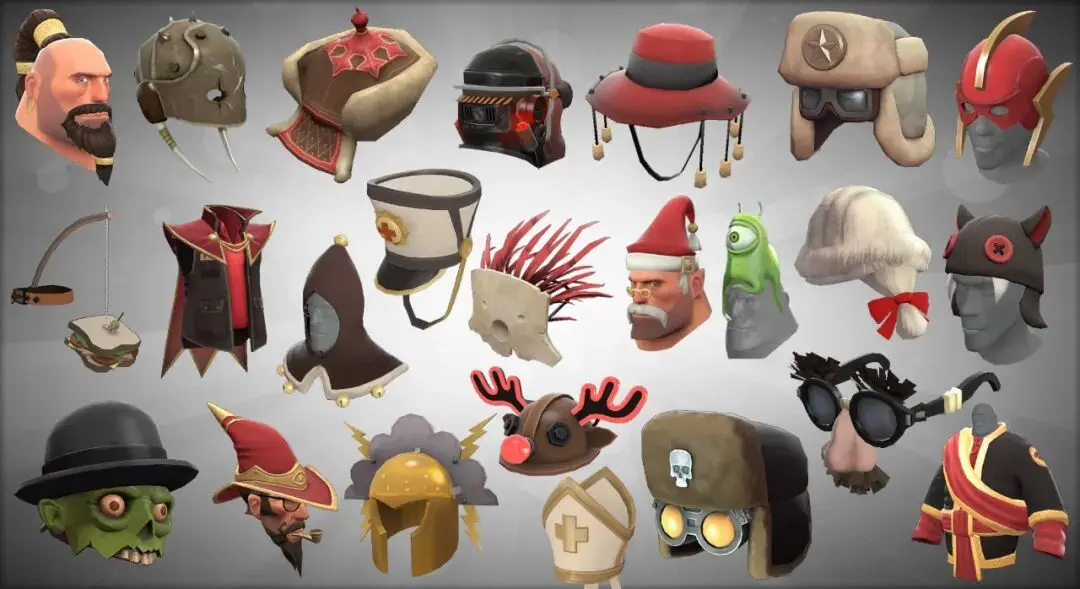
Due to differences in appearance, effects, and drop rates, many rare and sought-after hats quickly appeared in the game, and players who couldn't pull them simply chose to buy from others.
Gaben had a lightbulb moment: since someone wants to make this money, why can't it be me?
Thus, Valve launched an official trading platform where everyone could buy and sell freely, with Valve not intervening, only taking a small commission.
Unexpectedly, player enthusiasm far exceeded Gaben's imagination, and this trading system became increasingly popular, even leading to inflation and deflation…
Gaben realized something had to be done.
In 2012, Valve specifically hired a genuine economist to help them design and optimize their economic system, this guy:

His name is Yanis Varoufakis, an economics professor at the University of Athens.
During his time at Valve, his title was "Internal Economic Advisor." There are still some articles he published on Valve's official website; anyway, I can't quite understand them:
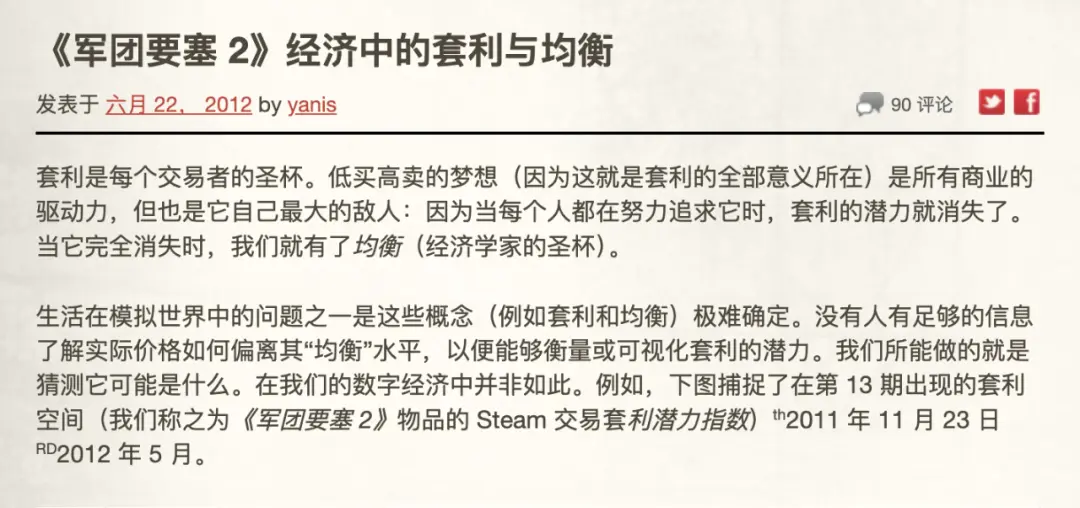
In short, Valve was serious about creating a complex virtual economic system.
According to Yanis Varoufakis, this system is more complex than the economic systems of many small countries in the world.
He is indeed qualified to say this because two years after leaving Valve, he became the Finance Minister of Greece.
The 2013 release of CS:GO can be considered the culmination of this system.
In CS:GO, players can obtain skins through opening cases and synthesis, with skins categorized into different tiers: white, blue, purple, red, and gold;
Each skin has a wear level, which affects its rarity; the same skin can have vastly different prices depending on its wear level;
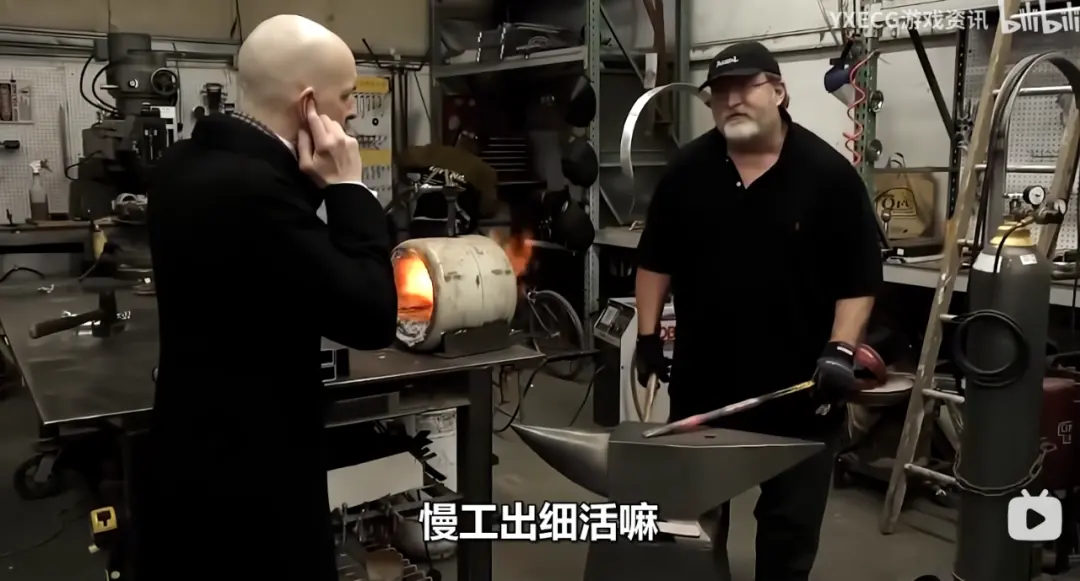
In addition to skins, there is also a separate sticker system, divided into player signatures, team logos, and pattern designs, with each category further divided into different levels;
In addition to stickers, some skins also have unique patterns, textures, and various attributes like "StatTrak (counter)" and more;
…
In short, CS skins can form thousands of different combinations, each skin has a unique ID, and there are even traceable transaction records, several versions ahead of today's NFTs.
You see, this thing was born for trading. Thus, shortly after its release, a market surrounding skins quickly flourished.
Live case openings became a traffic secret for many streamers. Once a top-tier item like the Dragon Lore or butterfly knife was pulled, it was inevitable that both the streamer and the chat would experience a collective high:
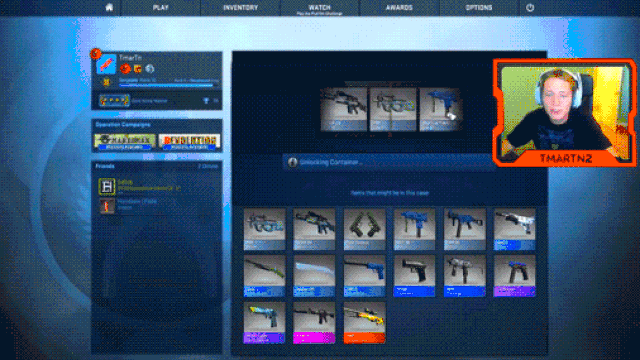
Various stories of sudden wealth began to emerge in the market, such as trading a rare gun skin for a house or a knife covering four years of tuition.
However, at this stage, the stories of sudden wealth were still limited to case openings.
Around 2020 or 2021, a large number of speculators entered the scene, and CS skins began to be compared to cryptocurrencies and NFTs, with prices suddenly skyrocketing.
Under the frenzy of speculation, doubling in price was no big deal, and a hundredfold increase was not uncommon.
Many began to promote CS skins as the next Bitcoin, warning that those who missed out would be in trouble:
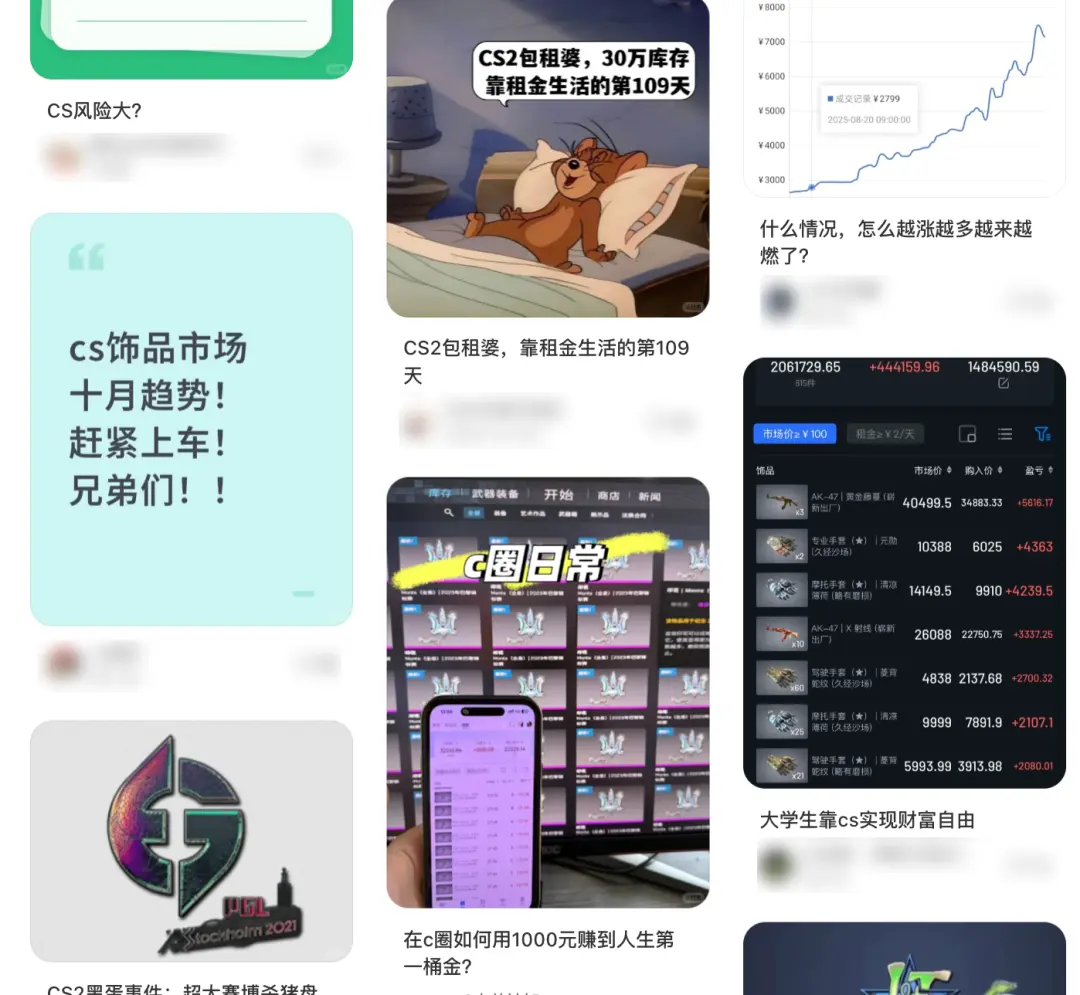
CS gradually transformed from a competitive game into a massive financial derivative platform. At its peak, the entire CS skin market was valued at over $6 billion (approximately 43 billion RMB).
The main users active in this market shifted from gamers to speculators.
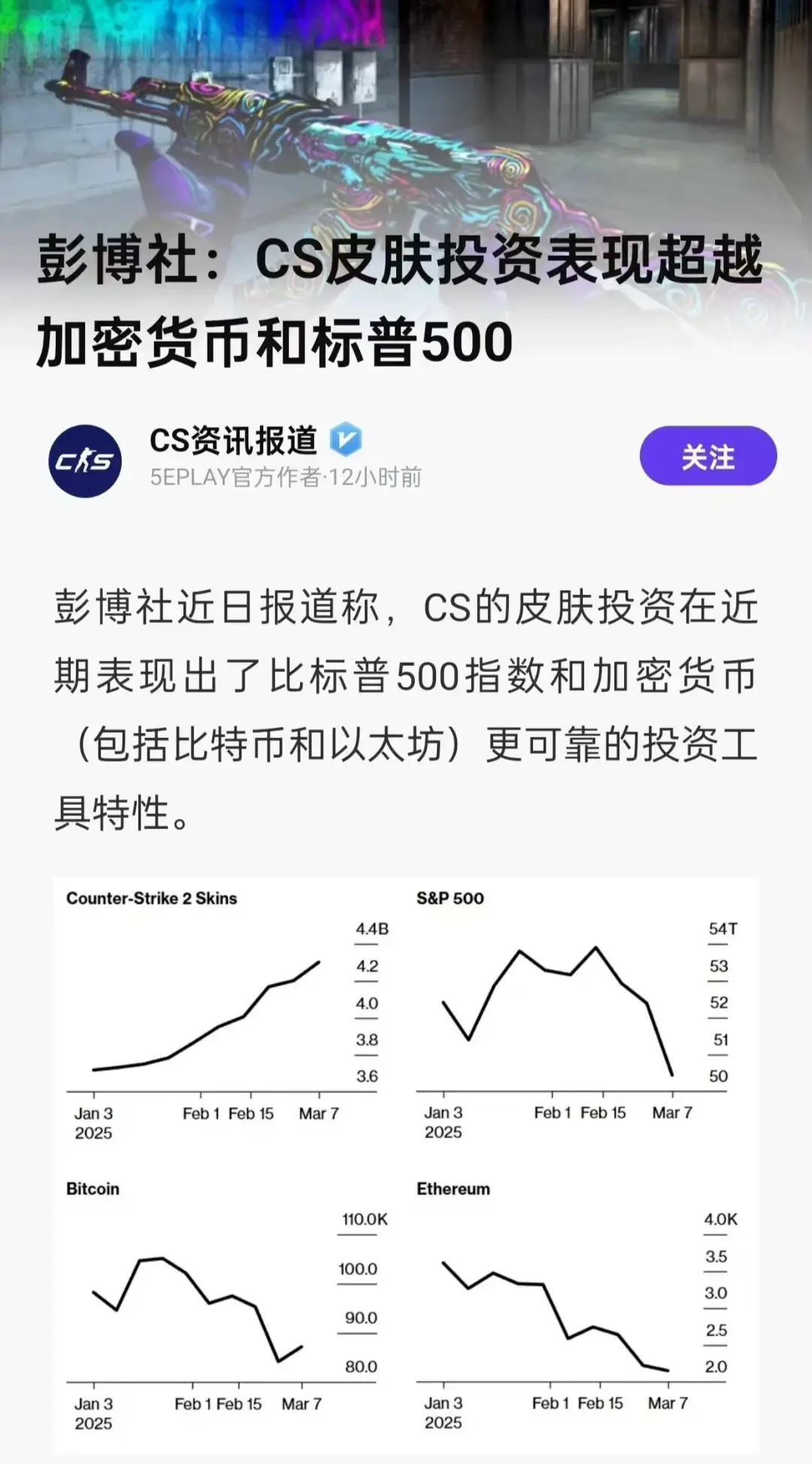
Until that crazy Thursday.
As for why Valve would self-destruct, the reason is simple:
This is not even Valve's own fortress.
According to Valve's rules, trading through the official platform incurs a 15% fee, and subsequent withdrawals are also quite difficult. Therefore, the main trading venues are third-party platforms, and no matter how high the prices are speculated, Valve receives not a penny.
These people not only don't pay taxes to Gaben, but they don't even log into the game.
Now that the new policy has come out, even worthless red skins are no longer a concern; they can be directly used for alchemy, giving ordinary players even more motivation to open cases.
The previously low-priced skins can now sell for a decent amount; the once unattainable high-priced skins are now affordable for ordinary players. The liquidity in the official market has also improved significantly.
Markets fluctuate, and there will always be losers, but Gaben, or the house, always wins.
Nothing New Under the Sun
The economic system designed by Valve has always faced significant controversy.
Just a month ago, the CS community had just erupted in a shocking scam: the Black Egg incident.
The so-called Black Egg refers to a team sticker that was released for a limited time during the 2021 Stockholm Major:
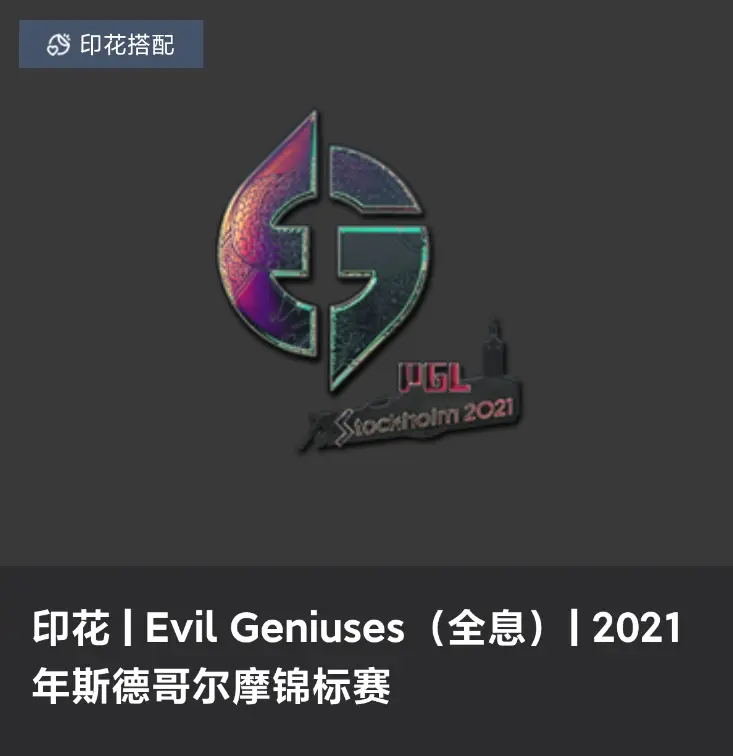
This seemingly ordinary sticker skyrocketed from $5 to $3000 in just two months, from July to September this year:
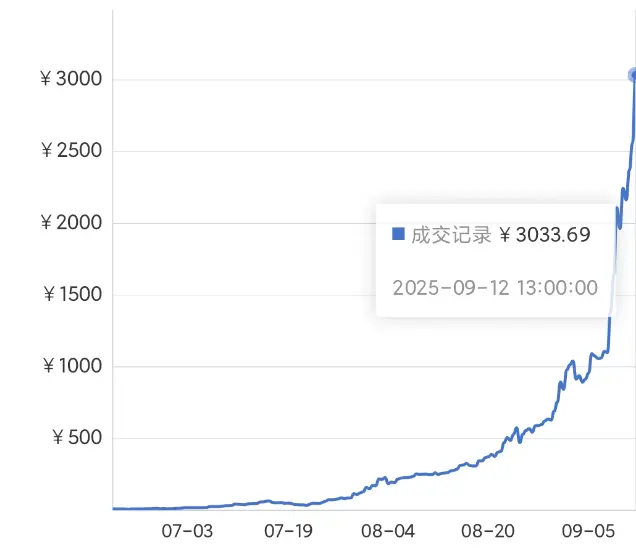
Many were promoting that the Black Egg would become the next "Holo Titan."
The Holo Titan was a special sticker for the Titan team released in 2014, and due to the team's disbandment, it became a limited edition, with prices rising from its initial release of a few dollars to hundreds of thousands of RMB:
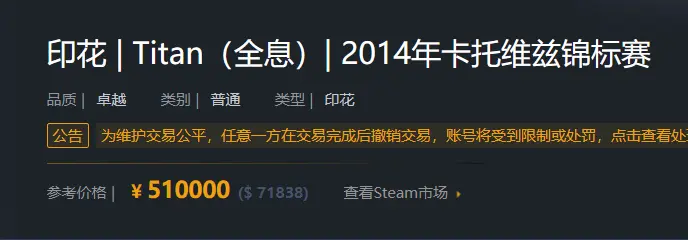
Worried about missing out on the Holo Titan, many went all in on the Black Egg.
However, in reality, although this skin was limited edition, the supply was quite large, and there was no reason for it to sell for such a high price.
Sure enough, after reaching the high of $3000, the Black Egg plummeted back down to a few dozen dollars in just two days.
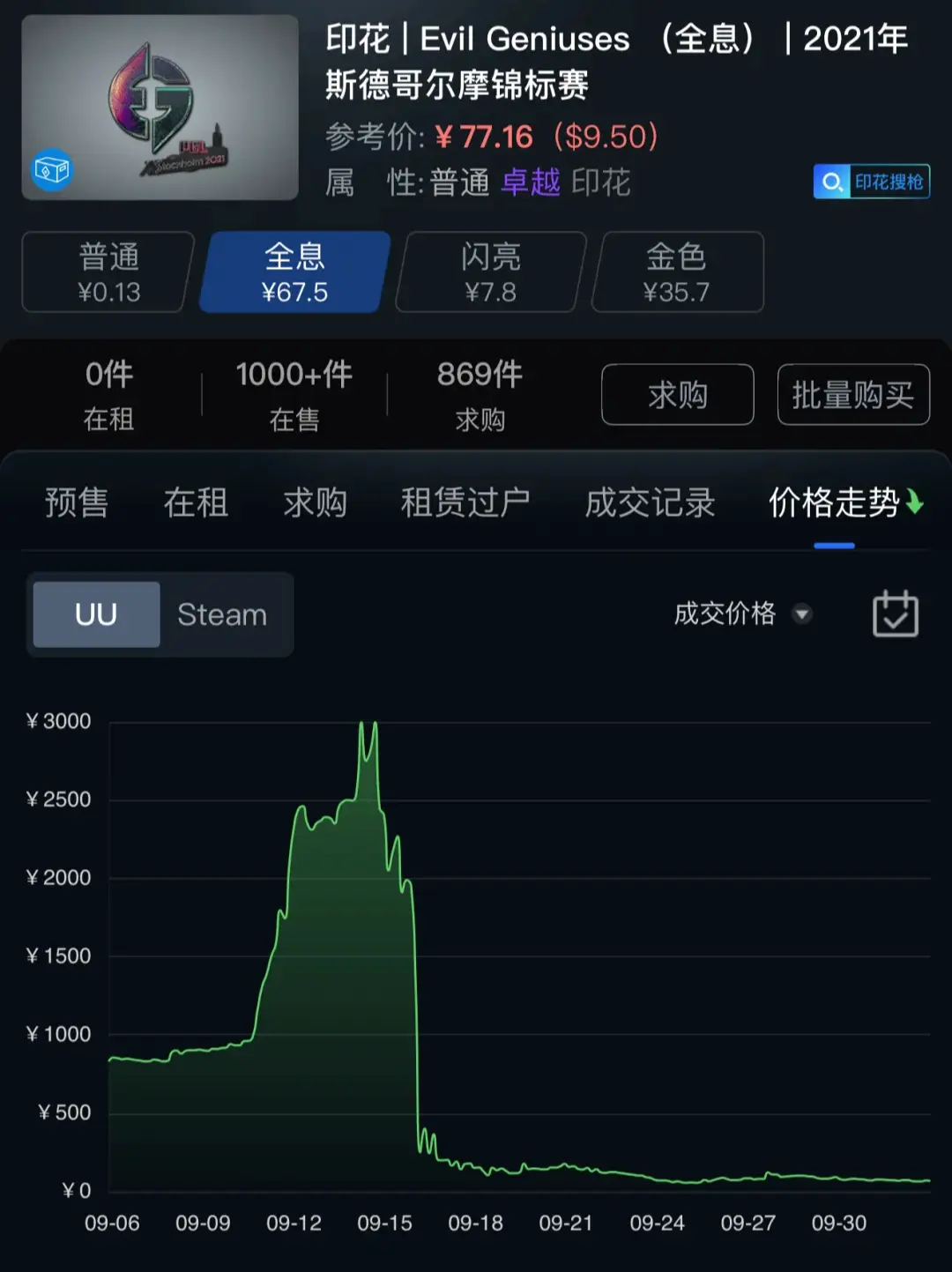
While prices may return to rational levels, money does not.

As an investment, CS skins have serious inherent flaws:
This market is unregulated, and everything is dictated by Valve;
In a T+7 market, one careless move can bury you;
All products are non-standard, and pricing lacks any fundamental basis;
…
You can list 100 shortcomings, but as long as there is an arbitrage opportunity, people will continue to flock in.
The hats from Team Fortress, Steam trading cards, Dota 2 immortal items—similar "tulip events" keep repeating in Valve's games.
Gaben is certainly not the "people's Gaben"; he designed this active system filled with arbitrage opportunities and risks, exploiting human weaknesses to gain substantial profits:
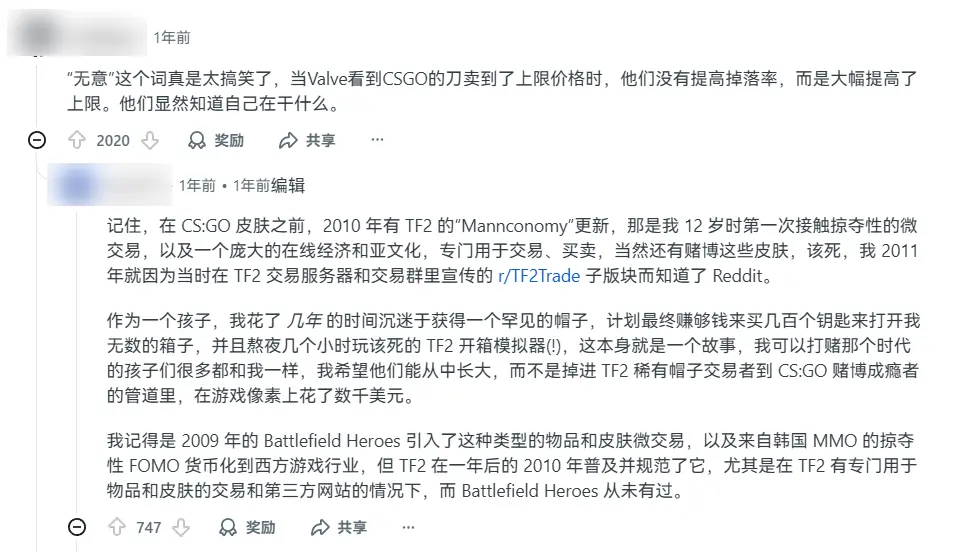
From the infrastructure of the Steam wallet to the establishment of community markets, opening interfaces for third-party trading platforms, and then controlling supply through the case-opening system, Valve has mastered a massive virtual market that can directly interact with the real world.
Today, Valve resembles a financial company more than a game company.
Thus, like all financial derivatives, stories of sudden wealth and crashes are created here every day.
Nothing new under the sun; whether in the real world or virtual space, humanity repeats the same melody: the eternal melody of desire and greed intertwined.
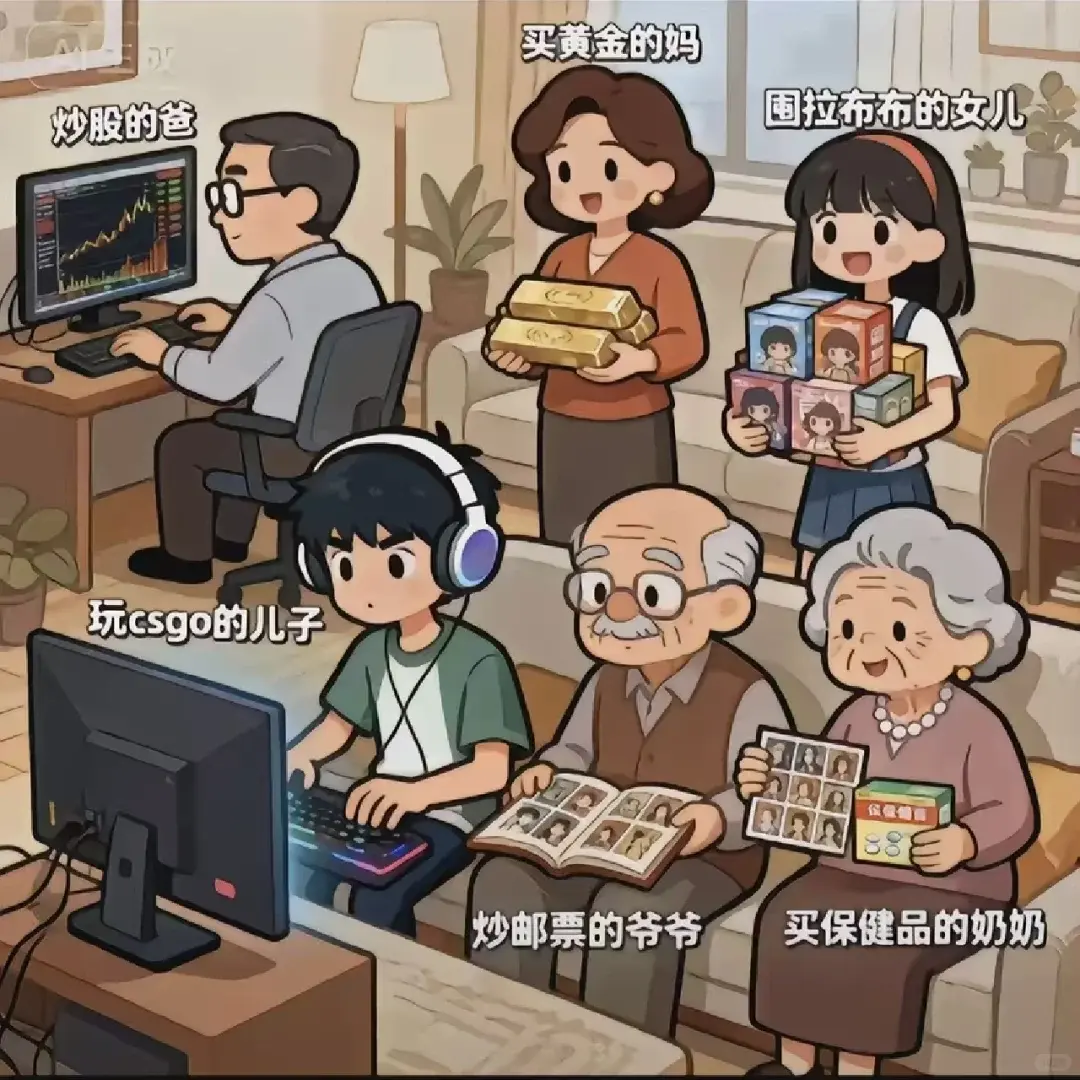
Disclaimer: This article represents only the personal views of the author and does not represent the position and views of this platform. This article is for information sharing only and does not constitute any investment advice to anyone. Any disputes between users and authors are unrelated to this platform. If the articles or images on the webpage involve infringement, please provide relevant proof of rights and identity documents and send an email to support@aicoin.com. The relevant staff of this platform will conduct an investigation.